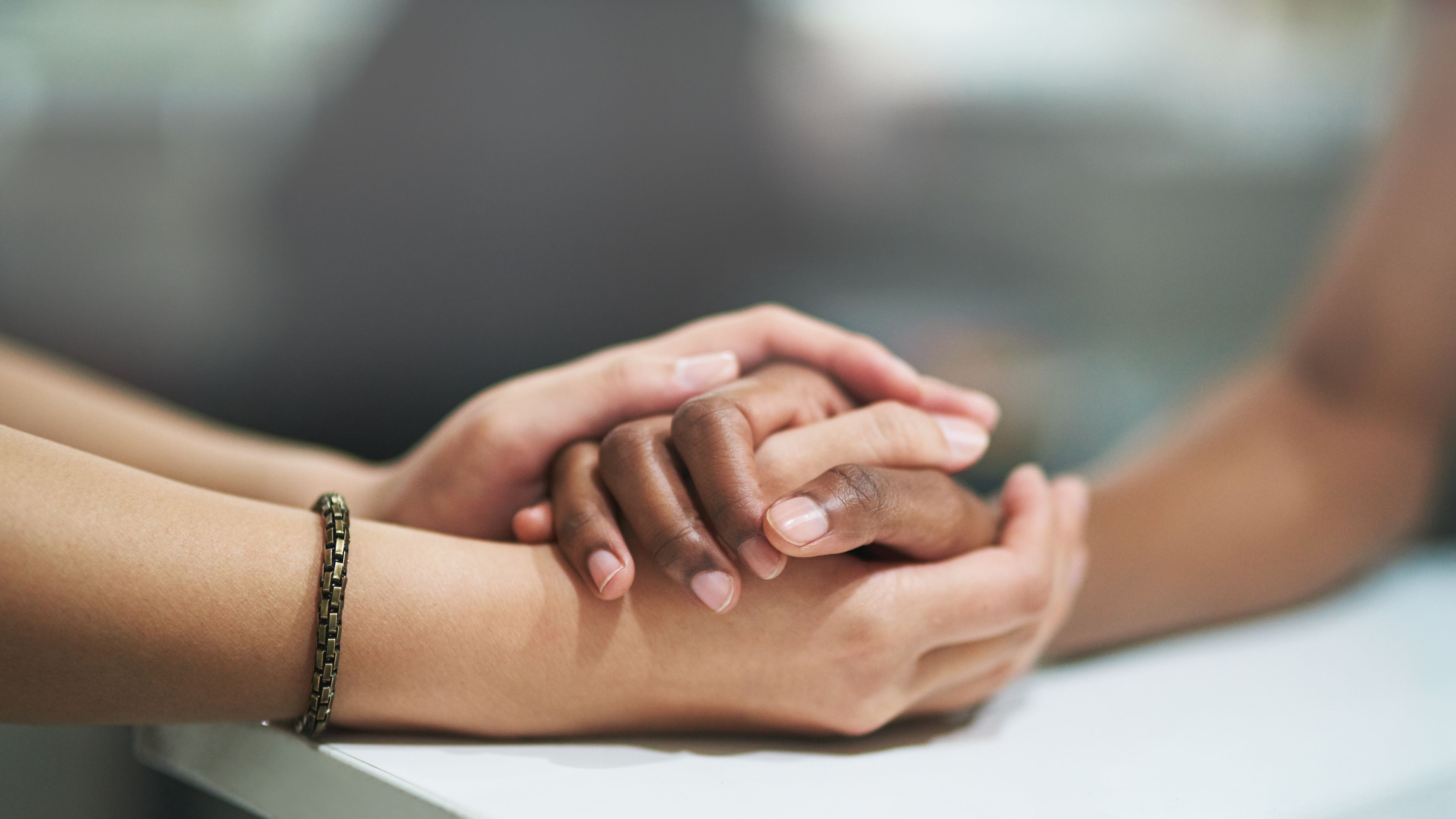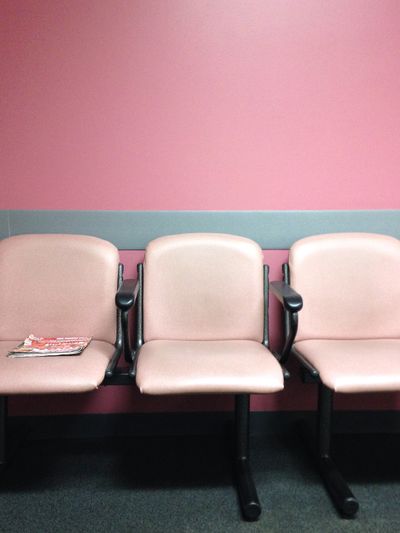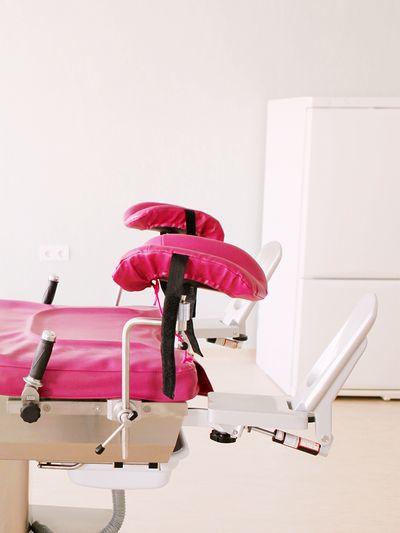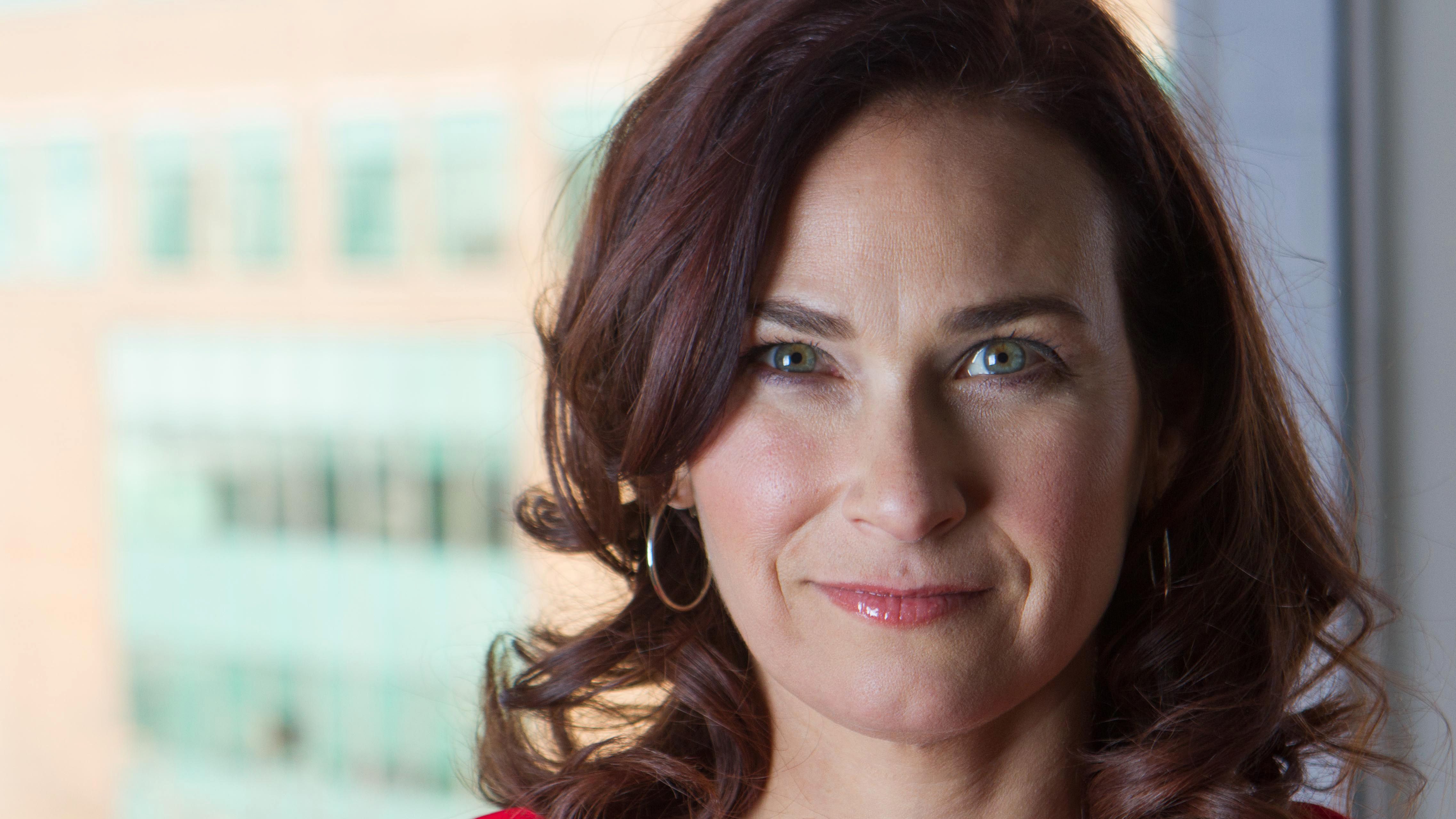Getting an Abortion Can Be Lonely. These People Will Hold Your Hand.
Abortion doulas, advocates who work to ensure a woman's best interest is always kept at the forefront, have already seen the harm restricted abortion access can cause.

Were Katie to guess how many women she’s helped through ending a pregnancy since getting her abortion doula certification two years ago, she’d put the number around “a couple hundred.” The 22-year-old (who doesn’t want her last name revealed, over concerns for her safety) is a member of the Knoxville Abortion Doula Collective, where she acts as a patient advocate and assists with a range of tasks around the procedure, from escorting patients into clinics to offering encouraging words and literal hand-holding. In a typical day she might see as many as 25 patients, even though sometimes the most she says to them is, “‘I'm here if you need me. You can hold my hand if you'd like.’”
Surely you've heard of traditional doulas: aides trained to assist people emotionally during childbirth. Abortion doulas do similar work, just for a different pregnancy outcome. Most abortion doulas and companions are volunteers, working to make sure that those seeking an abortion have support and access to information every step of the way.
Katie stresses that doulas do not offer medical advice or perform medical procedures. “Sometimes someone wants a hug, sometimes someone wants you to talk to them to distract them, and sometimes they just kind of want you to be there and just hold space for them in that moment.” She notes that most of the people who finish abortion doula training (which typically focuses on building empathy) and really thrive in the work are those who understand the limitations of their role. “You're not there to save anybody,” she says. “You're just there to support people, whatever that means for them.”
These selfless volunteers are integral in the fight for reproductive justice. Ericka Claudio, Lead Organizer of NARAL Pro-Choice Georgia, which works to get pro-choice candidates elected into office, says that women like Katie are helping to eliminate the stigma that still hangs heavy over abortion. “I myself have never had an abortion, but I can only imagine the type of support that you would need in that process, especially because of how shamed and how ridiculed the procedure is,” Claudio says. “It's important for women to have access to a doula. You don't have to worry about the judgment. You're talking to a professional, the same way if you were to go for a consult when you're buying a house. You want to have someone there that could help support you and your decisions and what you want, who can speak to a level of expertise so that you can feel safe and valued and validated in your decision-making process.”

The ability to even make those decisions is at stake in our country. In some pockets, like the Southeast, access has already be rolled way, way back. Tennessee, where Katie works, is one of the worst offenders. But it hasn't always been that way: The state used to be a kind of safe haven for those seeking abortion. Until 2014 the state's constitution spelled out a fundamental right to privacy, extending to a person’s option to terminate a pregnancy. But four years ago, Amendment 1—a proposal that, some have argued, purposefully used confusing language—passed, nullifying this constitutional right.
While it deeply affected Tennesseans seeking to terminate unwanted pregnancies, Katie says Amendment 1 also made pro-choice advocates in the state uniquely prepared to fight the perceived threat that Brett Kavanaugh’s Supreme Court appointment would pose to Roe v. Wade, a battle for which pro-choice advocates across the country are gearing up. After all, they've been fighting to give patients better reproductive access for years. “We already live in a state where adverse pregnancy outcomes are criminalized,” Katie says, noting a Tennessee woman’s December 2015 arrest following her attempt to self-manage an abortion.
Tennessee’s neighbors aren’t exactly more progressive. The number of clinics in the region offering surgical abortions or the abortion pill are as follows: 14 in North Carolina, nine in Georgia, five in Alabama, four in Louisiana, three in South Carolina, two in Kentucky, and just one in Mississippi. With such limited access, it’s easy for Southerners to imagine a post-Roe v. Wade world: It’s almost their exact reality.
Get exclusive access to fashion and beauty trends, hot-off-the-press celebrity news, and more.
Under extremely oppressive restrictions, abortion doulas become even more crucial. As of spring 2015, for example, any pregnant person in Tennessee seeking an abortion must endure a 48-hour waiting period, necessitating two clinic trips (one for in-person counseling and another for the actual procedure). Abortion doulas escort the patient to one or both trips, helping them feel less alone and making sure that the patients' wishes are respected by doctors and nurses.
“I think just being able to be in the room and support people no matter what—no matter what they're feeling, no matter what they're bringing with them—is a lot more helpful than trying to make the issue a very black-and-white one,” Katie explains. “It’s not true that ‘everyone who has an abortion feels like this.’ It's never going to be true and we don't have to make it true. We just need to make sure people get the support that they need.”
It’s easy for Southerners to imagine a post-Roe v. Wade world: It’s almost their reality.
Fewer clinics offering options coupled with the state-mandated waiting period creates additional challenges for pregnant women, including financial hurdles. Without insurance, an abortion at Tennessee and North Mississippi Planned Parenthood locations starts at $275; add to that the cost of taking off work, potentially arranging childcare, transit expenses, and the price tag of accommodations for about 72 hours, and the socioeconomic restrictions are staggeringly real.
To offset this attack on abortion access, many abortion doulas don't charge for their services. “Our co-op is sliding scale—low cost, free. I like to do my stuff for free,” says abortion doula Rowan, a companion with The Birmingham Birth Workers Cooperative in Alabama, who also works at a local restaurant. “I don't like to charge at all for it.” The doulas will often refer people in need to practical local organizations like Access Reproductive Care - Southeast and Alabama’s Yellowhammer Fund that offer financial assistance.
Rowan (who prefers they/them pronouns) adds that they’ve stayed relatively private about their status as a doula, concerned about their own personal safety as they practice controversial work in a conservative state. Even though abortion is currently federally legal, Katie, Rowan, and other abortion doulas and companions, particularly in the Southeast, face risks because of their choice to support reproductive rights in such a tangible way, much like the doctors and nurses who perform the procedures.
“Abortion doula work isn’t crucial because abortion is an inherently scarier or more traumatic medical procedure that people need support through,” Katie says. “People seeking abortion are politically and socially told, over and over, that their choices are wrong, and that because of that shame, they don’t deserve to be seen. I think there’s something powerful about people showing up in such a stigmatized moment to say the exact opposite.”
If you take away people's right to an abortion, they'll still find a way to get one.
Katie and Rowan both push the concept of community among abortion workers and pro-choice advocates in order to rise above craven attacks on reproductive freedom. “The only way we're going to all make it out of this is together is by strengthening the work we're doing in our area, but also understanding that, for the long haul across the country, we need to all be working together,” Katie says.
“If abortion does become illegal in the state, obviously that makes things very difficult for the collective,” she says. “We don't know what that looks like. Does that look like all the clinics shutting down because they're no longer able to get funding? Does that look like it being illegal to talk about sex ed?”

Rowan says that, should the Supreme Court overturn Roe v. Wade, they would look into training to assist in at-home abortions. “If you take away people's rights to get an abortion, they're still going to find a way to get them,” they say. “Why not just have this safe, clean environment for them to have it done by a professional?”
Still, abortion doulas and other activists remain hopeful. “The South is bold, the South is vibrant, the South is beautiful, and I think there are a lot of people doing this work in the South because we want it to be a place worth living,” Katie says. “You care about the lives of the people who are having children, who are deciding not to have children, who are just trying to live out their daily lives here, and we want to make that better.”
Ultimately, Kate says that the satisfaction she finds in her work isn't from indulging a savior complex, but from how often patients tell her that her presence puts them at ease. “What comes to mind is just how many different times I've worked with patients who have then said 'thank you.' And not just 'thank you,' but 'thank you' in a surprised way, because [some patients] maybe didn't expect anyone to be there for them that day.”
To protect abortion access, Planned Parenthood urges people to contact their senators to tell them to reject Kavanaugh’s nomination, as well as any other nominee who does not support pro-choice legislation. You may also make monetary donations to organizations fighting to keep this crucial surgery available, safe, and legal, like National Network of Abortion Funds and National Association for the Repeal of Abortion Laws (NARAL).
RELATED STORY
